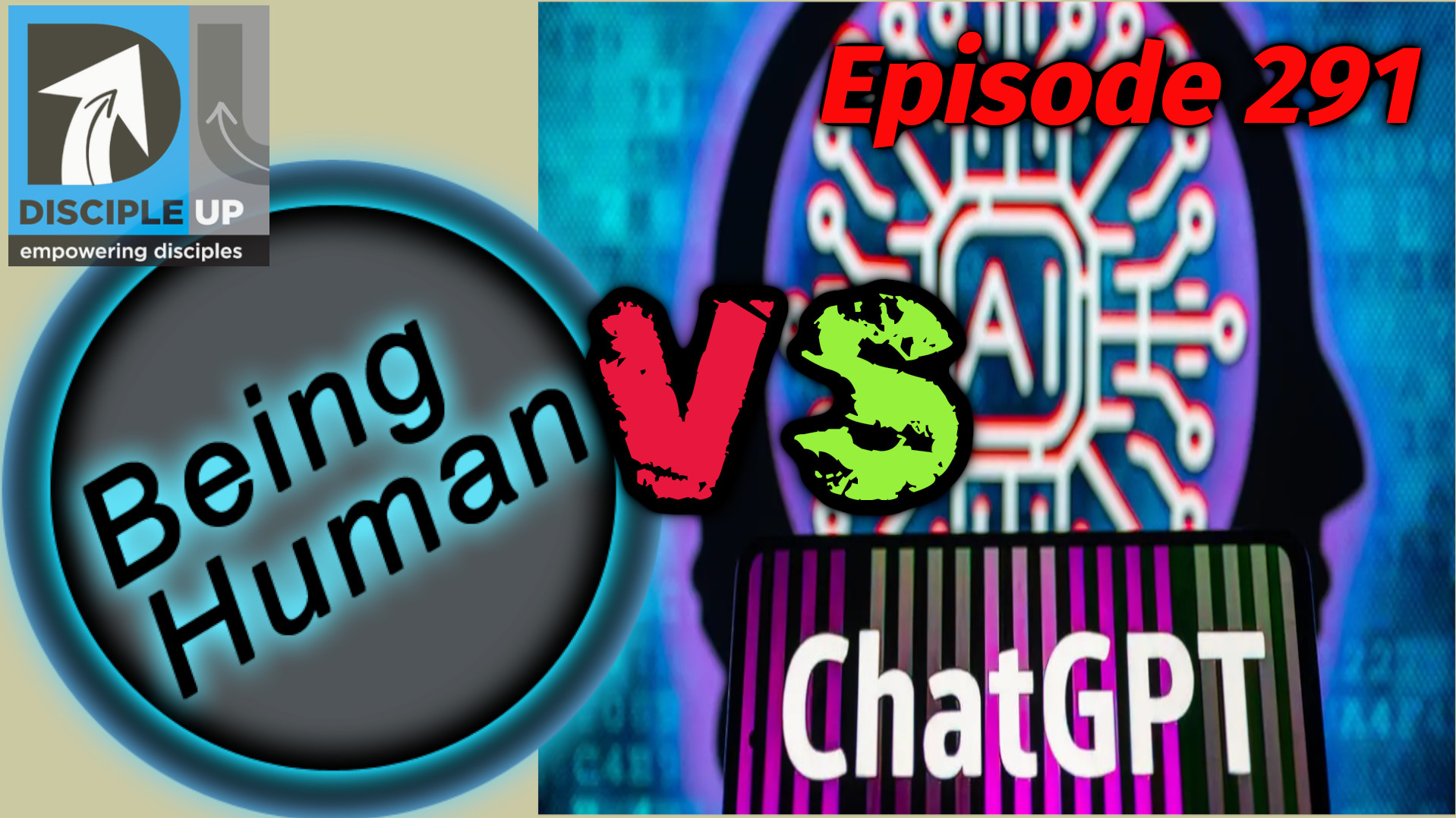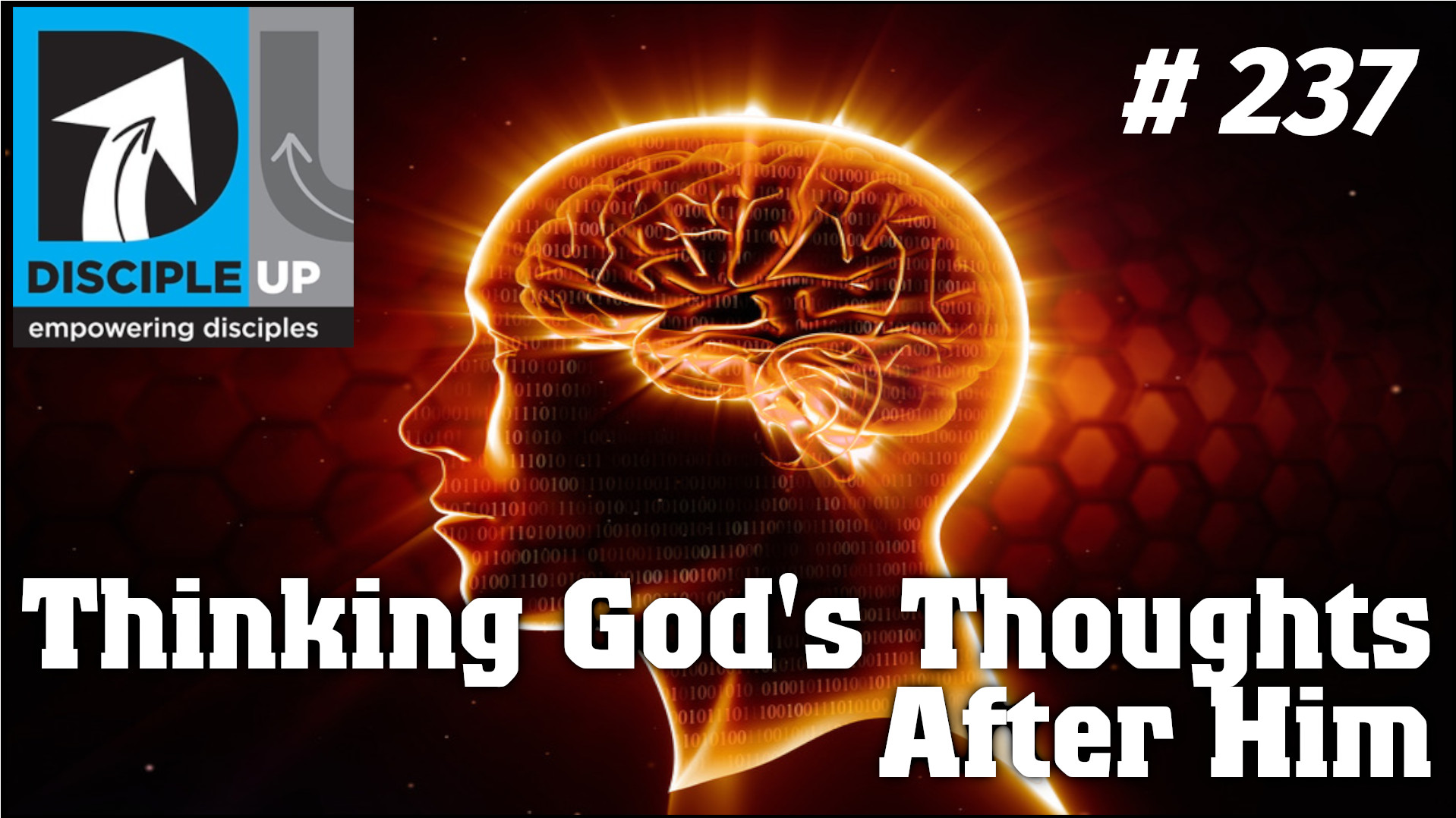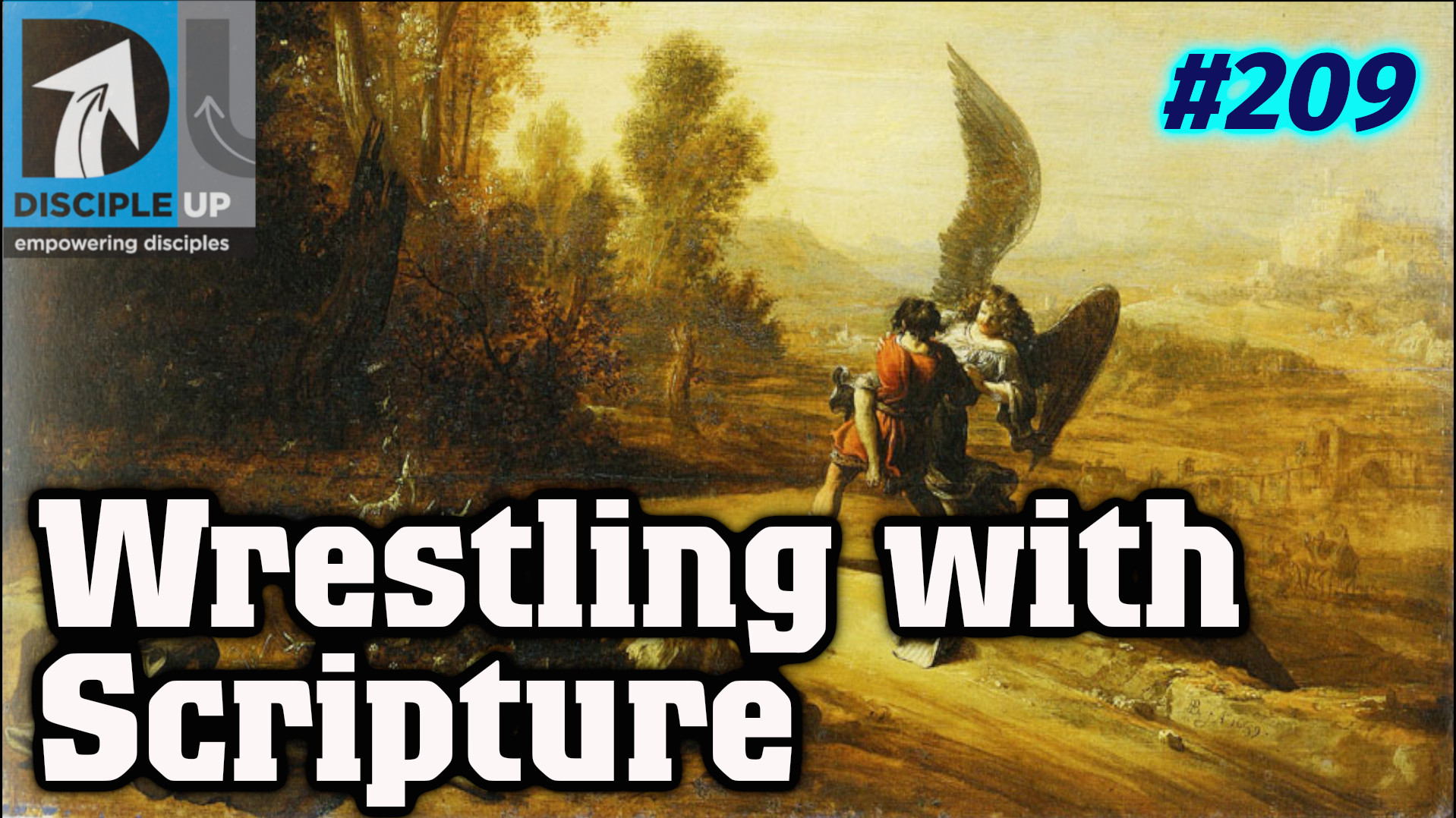Disciple Up #291
Louie VS. ChatGPT
Intro – Crazy schedule, origin of this idea, etc.
Here’s what the Chatbot wrote, read by Word’s voice. I find it fitting and proper to have a software program read what another software program wrote!
Sermon on Salt of the Earth
“You are the salt of the earth, but if salt has lost its taste, how shall its saltiness be restored? It is no longer good for anything except to be thrown out and trampled under people’s feet.
“You are the light of the world. A city set on a hill cannot be hidden. Nor do people light a lamp and put it under a basket, but on a stand, and it gives light to all in the house. In the same way, let your light shine before others, so that they may see your good works and give glory to your Father who is in heaven.
In these verses, Jesus is telling his disciples that they are the salt and light of the earth. Salt is a preservative and a flavor enhancer, and Jesus is telling his disciples that they too must preserve and enhance the world around them. They are to be a positive influence on society and to bring flavor and richness to people’s lives.
Jesus also compares his disciples to light. A light cannot be hidden; it shines brightly for all to see. In the same way, Jesus’s disciples should not try to hide their faith but should let it shine for all to see. Their good works should be visible to others so that they may give glory to God.
We all have the potential to be the salt and light of the earth. We can enhance the lives of those around us and bring flavor and richness to the world. We can also let our light shine by living out our faith and being a positive influence on society. Let us strive to be the salt and light of the earth, and bring glory to our Father in heaven.
Write a sermon on Ephesians 2
“And you were dead in the trespasses and sins in which you once walked, following the course of this world, following the prince of the power of the air, the spirit that is now at work in the sons of disobedience— among whom we all once lived in the passions of our flesh, carrying out the desires of the body and the mind, and were by nature children of wrath, like the rest of mankind.
But God, being rich in mercy, because of the great love with which he loved us, even when we were dead in our trespasses, made us alive together with Christ—by grace you have been saved— and raised us up with him and seated us with him in the heavenly places in Christ Jesus, so that in the coming ages he might show the immeasurable riches of his grace in kindness toward us in Christ Jesus.
In this passage, Paul is describing the state of humanity before salvation, as being dead in sin and under the power of Satan. He is also highlighting the fact that salvation is not something we can earn by our own good works, but it is a gift of grace given to us by God.
God, in his love and mercy, made us alive in Christ, saved us and raised us up with him to sit in heavenly places. This is not something we can earn or deserve, but it is a gift of God’s grace.
Paul also emphasizes that this salvation is not just for now but for the coming ages, and that God’s grace is immeasurable and eternal.
The message for us today is that we are saved by grace, not by our own works. We can have the assurance that God’s love and mercy are available to us, and that we have been raised to new life in Christ. Let us live in thankfulness for the grace given to us and share this good news with others.
Sermon on Romans 6:1-3
“What shall we say then? Are we to continue in sin that grace may abound? By no means! How can we who died to sin still live in it? Do you not know that all of us who have been baptized into Christ Jesus were baptized into his death? We were buried therefore with him by baptism into death, in order that, just as Christ was raised from the dead by the glory of the Father, we too might walk in newness of life.
In this passage, Paul is addressing the question of whether or not Christians can continue to live in sin since they are saved by grace. He answers this question with a resounding “no.” He reminds the Romans that they have been baptized into Christ and united with him in his death. This means that they have died to sin and are now called to live a new life in Christ.
Paul is emphasizing that salvation is not a license to sin, but it is a call to a new way of life. We are united with Christ in his death, and that means that we have died to sin and are now alive in Christ.
In baptism, we are buried with Christ and raised to new life, just as he was raised from the dead. This new life in Christ requires that we walk in a new way, a way of righteousness and holiness.
The message for us today is that salvation is not a license to sin but a call to a new life in Christ. We have been united with him in his death, and we are called to live in a way that is worthy of our new life in him. Let us strive to live in righteousness and holiness, and to walk in the newness of life that we have received through the grace of our Lord Jesus Christ.
What does the Bible teach about homosexuality?
The Bible does not specifically mention the term “homosexuality,” as it is a modern term. However, the Bible does address same-sex sexual activity in several passages. In the Old Testament, Leviticus 18:22 states, “You shall not lie with a male as with a woman; it is an abomination.” Similarly, in the New Testament, Romans 1:26-27 states, “For this reason God gave them up to dishonorable passions. For their women exchanged natural relations for those that are contrary to nature; and the men likewise gave up natural relations with women and were consumed with passion for one another, men committing shameless acts with men and receiving in themselves the due penalty for their error.”
It’s important to note that these passages, and others that mention same-sex sexual activity, also condemn other sexual practices such as adultery and promiscuity. These passages should be understood in the context of the culture and laws of the time they were written, and not be taken out of context.
The Bible teaches that all sexual activity outside of the context of marriage between a man and a woman is sinful. However, it’s important to remember that the Bible also teaches that we are all sinners, and that God’s love and forgiveness is available to all who repent and turn to him.
It’s important to remember that the Bible teaches that all people, regardless of their sexual orientation, are created in the image of God and should be treated with love, compassion, and respect. It’s also important to remember that interpreting biblical texts is a complex task that requires careful consideration of the historical, cultural, and literary context, and should be done with the guidance of scholars and theologians.
According to the New Testament who goes to hell?
According to the New Testament, those who do not accept Jesus Christ as their Lord and Savior and reject his gift of salvation will go to hell. The Bible states that all people are sinners and in need of salvation, and that salvation can only be found through faith in Jesus Christ. In the New Testament, Jesus himself speaks about hell as a place of eternal punishment for those who reject him and his teachings.
For example, in Matthew 25:46, Jesus says, “Then they will go away to eternal punishment, but the righteous to eternal life.” In Mark 9:43-48, Jesus speaks of hell as a place of fire where the worm does not die and the fire is not quenched.
It’s important to note that the Bible teaches that God is a loving God and that he desires that all people come to salvation. However, God also gives each person the free will to accept or reject his offer of salvation.
It’s also important to remember that interpreting biblical texts is a complex task that requires careful consideration of the historical, cultural, and literary context, and should be done with the guidance of scholars and theologians.
Is Calvinism a correct interpretation of the Bible?
Calvinism is a theology that is based on the teachings of the 16th-century French theologian John Calvin. It emphasizes the sovereignty of God, the depravity of humanity, and the concept of predestination, which holds that God predestines some individuals for salvation and others for damnation.
Many Christians believe that Calvinism is a correct interpretation of the Bible, as it is based on a careful study of scripture and emphasizes the sovereignty of God. Calvinism has also had a significant impact on the development of Christian theology and has been influential in the formation of many Protestant denominations.
However, it’s important to note that there are other Christian denominations and theologians that interpret the Bible differently and have different perspectives on the sovereignty of God, the depravity of humanity, and the concept of predestination.
For example, Arminianism, which is an opposing theology, holds that God’s grace can be resisted and that human beings have the free will to accept or reject salvation, and that is also based on a scriptural understanding.
It’s also important to remember that interpreting biblical texts is a complex task that requires careful consideration of the historical, cultural, and literary context, and should be done with the guidance of scholars and theologians.
In summary, Calvinism is a valid interpretation of the Bible, but it is not the only one, and different Christian denominations and theologians may have different perspectives on the teachings of the Bible.
Which is the most accurate Bible translation in the English language?
The most accurate Bible translation is a matter of debate among scholars and theologians. Different translations have their strengths and weaknesses, and the choice of which translation to use often depends on an individual’s personal preference and the purpose for which the translation is being used.
The King James Version (KJV) is a popular translation that is known for its poetic language and historical significance. It was first published in 1611 and has been widely used for centuries. However, it is based on texts that are over 400 years old and it may use the language that is not commonly used today.
The New International Version (NIV) is a widely used translation that is known for its accuracy and readability. It was first published in 1978 and has undergone several revisions to ensure its accuracy and clarity.
The New Revised Standard Version (NRSV) is an ecumenical translation that is used by many scholars and theologians. It is known for its accuracy, and for its inclusive language, which is designed to be more inclusive of women and people of different ethnicities.
The English Standard Version (ESV) is considered as a word-for-word translation and it is known for its formal equivalence and accurate rendering of the original texts.
It’s important to remember that any translation will have some degree of interpretive bias, but many of the most widely used translations are considered to be highly accurate and are based on the latest scholarship and research. It’s advisable to consult with a pastor, theologian or a Bible scholar to help you choose the best translation for your needs and purpose.
Please Get In Touch!
Email – louie@discipleup.org

Check out the Disciple Up Facebook page:
My books –














